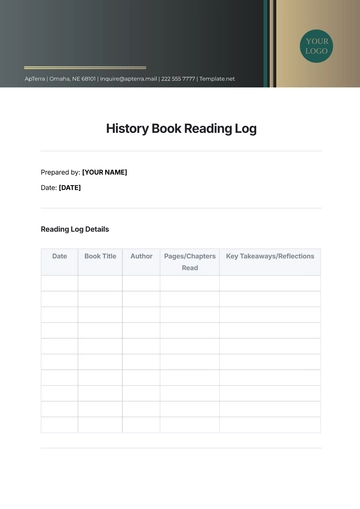Political Science Book Report
Prepared By:
[YOUR NAME]
[YOUR COMPANY NAME]
Title: The Origins of Political Order: From Prehuman Times to the French Revolution
Author: Francis Fukuyama
Publisher: Farrar, Straus and Giroux
Summary
In The Origins of Political Order, Francis Fukuyama embarks on a comprehensive exploration of political development from the earliest stages of human history to the French Revolution. Fukuyama seeks to answer a fundamental question: how and why did political order emerge in societies, and why have some states been more successful than others?
Fukuyama divides his analysis into several key phases, tracing the evolution of political systems from prehuman times, focusing on the role of kinship groups, the rise of the state, and the development of political institutions. He explores the emergence of centralized power in early civilizations such as Mesopotamia, the role of religion and culture in forming political authority, and the eventual transition to more structured forms of governance.
The author delves deeply into the concept of "social order," arguing that the state must balance three key elements: strong political institutions, the rule of law, and accountable governance. Fukuyama’s historical narrative spans multiple cultures, from early tribal societies to feudal systems, illustrating the developmental paths that led to modern political systems.
He also examines the challenges faced by different societies in establishing effective political systems, touching on the role of violence, economic development, and culture. The book concludes with an exploration of the French Revolution, analyzing its impact on the development of modern political order.
Evaluation of Key Arguments
Fukuyama's main argument revolves around the idea that political order is not an inevitable result of human social organization but rather a historical process shaped by multiple factors, including war, religion, and economic change. His thesis emphasizes the importance of strong political institutions in maintaining order and achieving stability in societies.
One of the most compelling aspects of the book is Fukuyama’s ability to synthesize various historical narratives, offering a broad comparative perspective. He argues that the state has always had to balance the competing demands of power and legitimacy, a tension that remains central to political order today. His examination of the emergence of centralized political power, particularly in the context of early human societies and the role of the state in regulating violence, provides valuable insights into the historical underpinnings of modern political systems.
However, Fukuyama's focus on the role of institutions might oversimplify the importance of individual agency and the unpredictable nature of historical development. While the book offers a sweeping historical analysis, some critics have argued that it underestimates the complexity of human political behavior and the role of ideas in shaping political change.
Relevance and Impact
The Origins of Political Order provides a crucial framework for understanding the development of political systems across history. It is particularly relevant to students and scholars of political science, as well as policymakers seeking to understand the historical roots of contemporary political struggles.
The book’s exploration of the state’s role in managing political and social order challenges many prevailing assumptions about governance, especially those that focus primarily on economic or ideological explanations. Fukuyama's work is invaluable for anyone interested in comparative politics, political history, or the future of global governance, particularly in light of current debates about the challenges facing modern democratic institutions.
Critical Assessment
Fukuyama’s work stands as a seminal contribution to the study of political development. His thorough historical analysis and clear, engaging writing make the complex subject matter accessible to a broad audience. However, the book’s reliance on historical material might limit its practical applicability in contemporary political discourse. While it offers a rich historical account, the applicability of its conclusions to modern political systems requires further exploration, especially in light of globalization and technological change.
Additionally, Fukuyama’s emphasis on the necessity of strong institutions may overlook other factors that influence political stability, such as economic inequality, social movements, or the influence of non-state actors. While these factors are touched upon in the book, they are not the primary focus, which might limit the book’s ability to offer a holistic analysis of political order in the modern world.
Conclusion
Overall, The Origins of Political Order is an insightful and thought-provoking examination of the evolution of political systems. Fukuyama provides a broad and comparative historical perspective that enriches our understanding of how political order emerges and why some systems succeed while others fail. Despite some criticisms, the book is a valuable resource for anyone seeking to explore the foundations of political science and the historical development of governance systems.
Report Templates @ Template.net






























